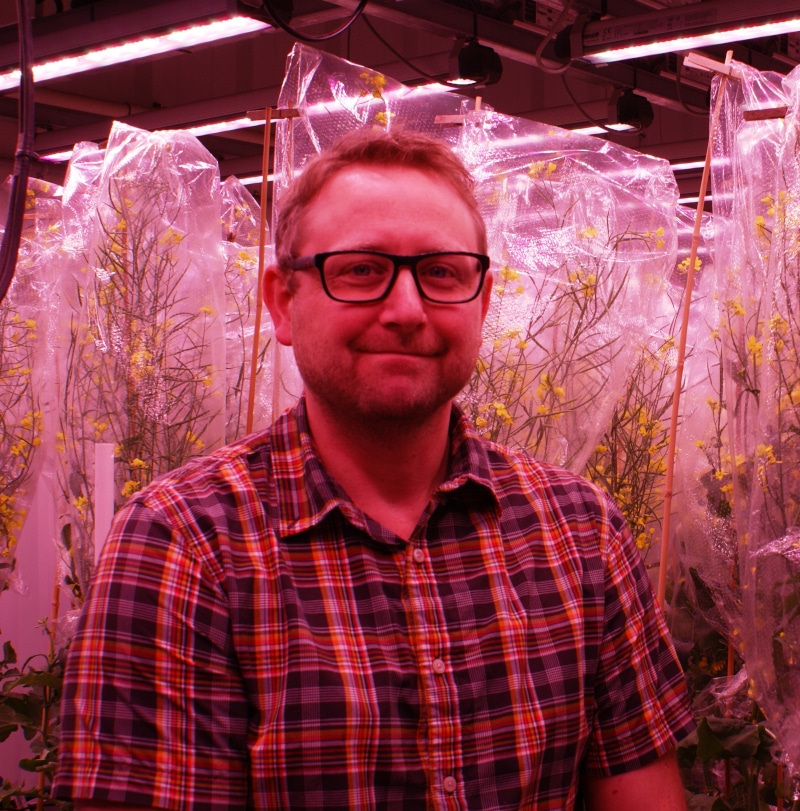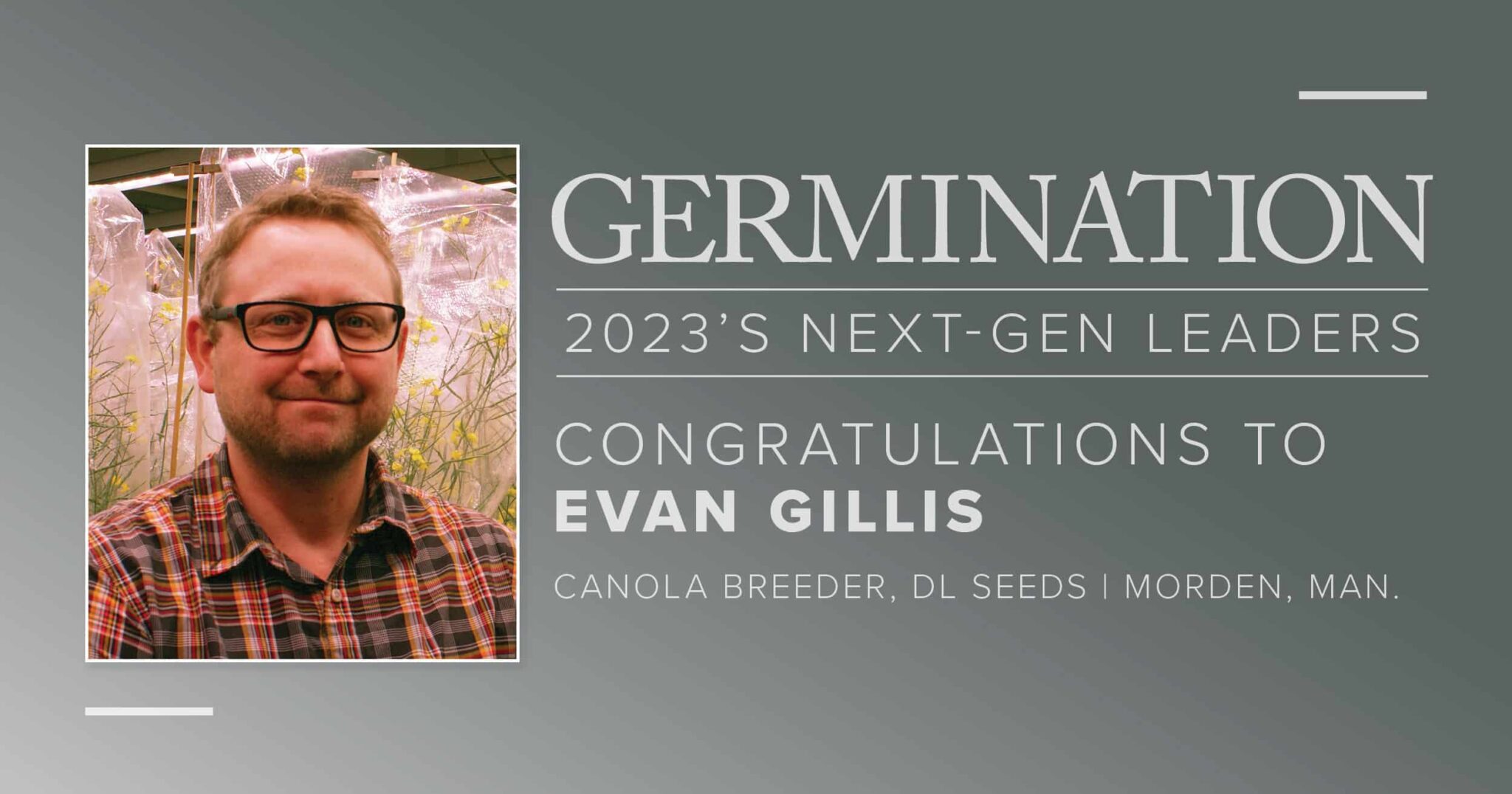There’s a generational shift happening. In less than eight years, a new generation will step up to replace the seven million people over 65 in Canada. Investing in young leaders is needed now more than ever.
Fortunately for the seed industry, the future’s in good hands.
Germination asked for nominations for 10 leaders in the industry who showcase a drive for bettering the global seed industry. These leaders come from a range of businesses — from multinationals to associations to independent companies. They all have one goal in common: leading the seed sector into the future.
These 10 Next-Gen Leaders were nominated by their managers, their peers, and different seed associations who saw their potential as up-and-coming leaders. Here’s the second.
Evan Gillis has a strong background in agriculture and plant breeding. Growing up on a farm and going through an agronomy program provided him with a good foundation of knowledge. His experience conducting research and working as an assistant breeder, as well as doing his master’s degree in pathology focusing on flax, gave him more specific experience in plant breeding. It led him to the Plant Breeding Academy at the University of California, Davis.

Working in canola now, he’s fast gaining a reputation as someone who’s helping take this major cash crop to new heights by helping a small-to-medium sized seed company like DL Seeds compete on such a large scale with a crop like canola.
“There’s a lot of opportunity in this field, especially given the demand for canola in various industries,” he says.
“In our breeding process, we’re doing a lot to make things faster. We have to adapt to market changes and disruptions. We’re expanding our pulse program and investing in new varieties for the human consumption market,” he says. “Competition is high in the canola market, but we strive to be at the forefront of changes in the industry.”
What attracts him so much to canola is the global reach of the crop.
“We’re seeing germplasm coming to Canada from all over the world — from Australia, Europe, China — and we get to look at it. Big things are coming. We have nurseries in the field that are full of germplasm that Canada has never seen before, and that we may use someday. It’s exciting to see it on the ground level, many years away from any sort of actual variety in the field,” he says.










